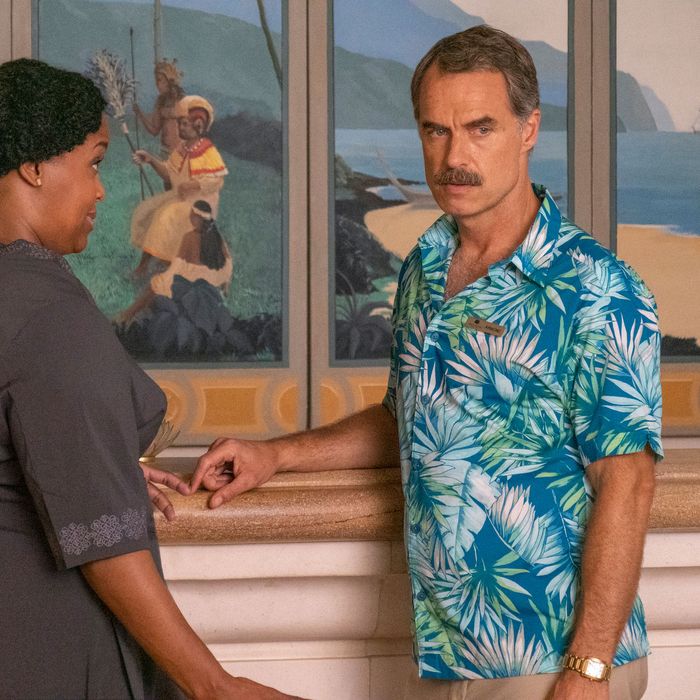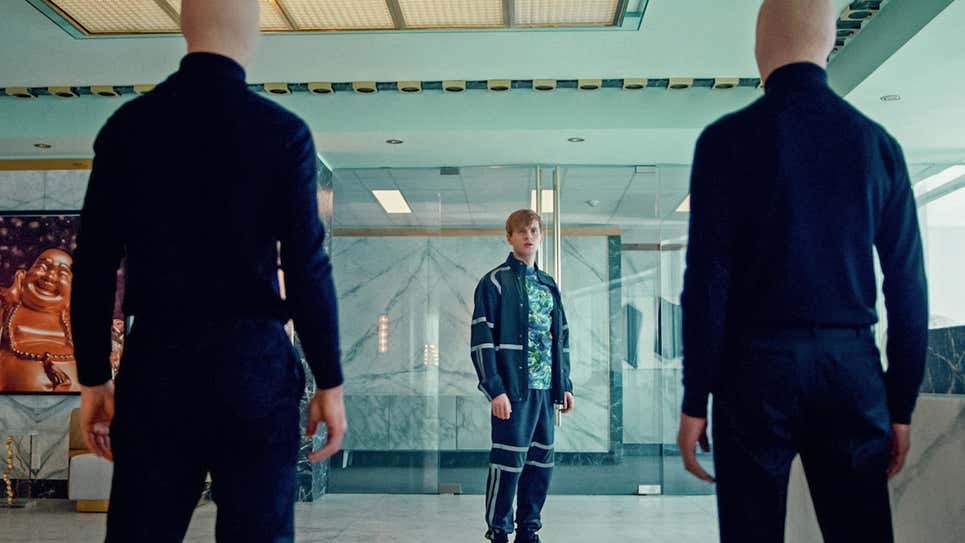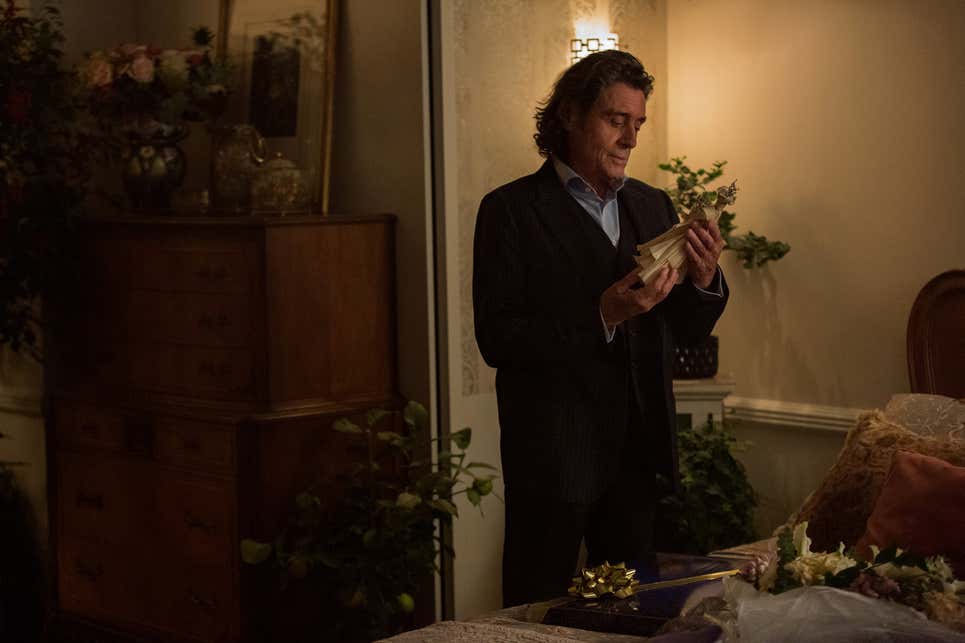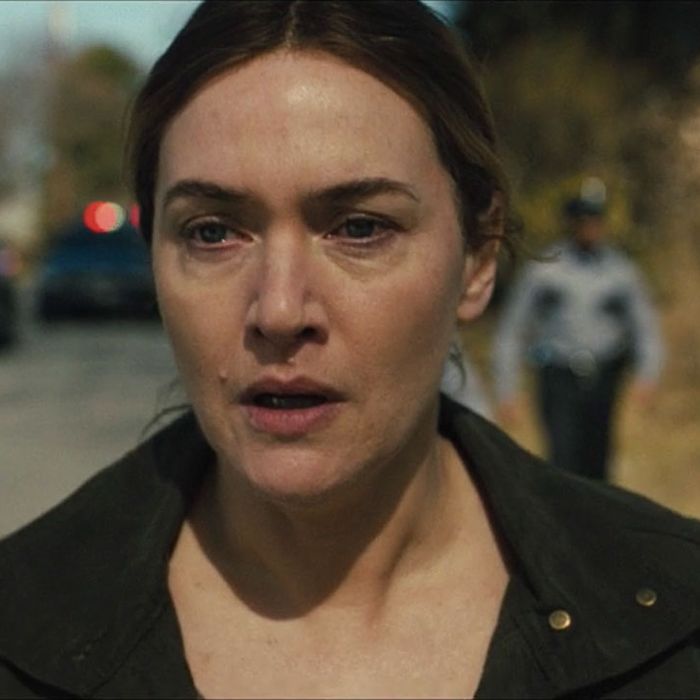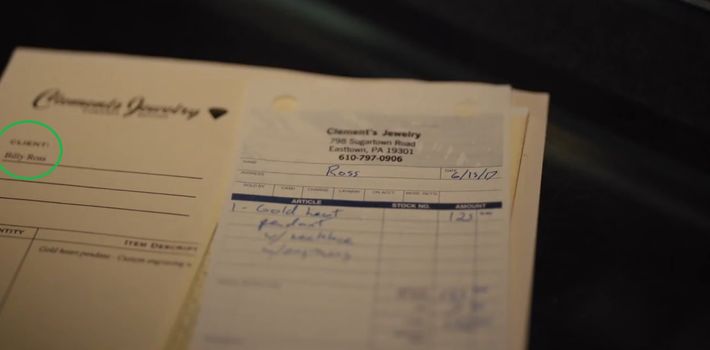What did you miss? For a review of the last episode, click HERE
from Vulture: https://www.vulture.com/2018/08/the-sinner-recap-season-2-episode-5-part-v.html
The Sinner S2 Ep 5
The Sinner Recap: Do Not Pass Goat
By Kenny Herzog
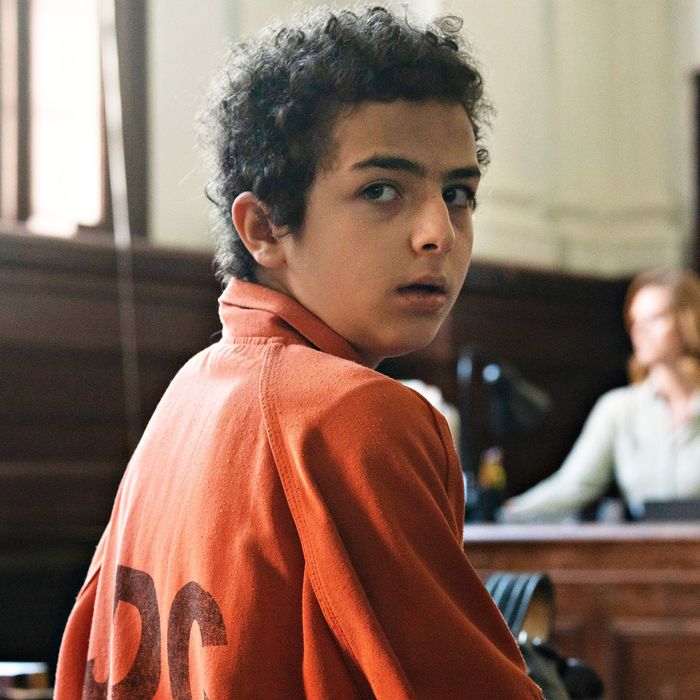
Photo: USA Network/Peter Kramer/USA Network
Here’s a question: If Heather’s so concerned about her dad’s diet, how come she’s suddenly mum every time he sits them down for deli-meat sandwiches, scoops of ice cream or ladles full of unsweetened iced tea? It could be a part of their dynamic that simply didn’t carry over from the pilot, or perhaps it’s an insight into how distracted Heather is thanks to all things Mosswood and Marin. Heather herself is a bit distracting — well-intentioned but by turns naïve and needling. She’s also, like almost everyone else in Keller, prone to conscientious omission. Turns out she was a regular at the commune during Marin’s early days carrying. She just never got much farther than the front gate, despite her pleas for Marin to remember the good old days of stealing money from her mom’s purse and not dwelling on the confusing psychosexual nuances of their relationship.
But by this point — roughly around late summer of 2004 — Marin’s made up her mind that there’s no one and no place that can offer her solace. She’s a true lost soul, her only shot at redemption and real love latent within her womb. As we know, it wasn’t long after Julian was born the next spring that mother and son were split apart. The information neither we nor Harry have on hand, information that someone (Vera? Jack? Glen? hell, Heather?) is keeping privileged for their own private reasons, is why.
Consistent with its predecessor, season two of The Sinner is circling a vast, conspiratorial conclusion as it turns toward its third act. After confronting bushy-stached Glen Fisher (how else were we gonna ID him on that grainy minicam vid?) about his violent episode at Mosswood and spotting a telltale metronome among his tchotchkes (looks like someone wanted to be found), Harry goes rogue and breaks into the sketchy dairy farmer’s house. Without too much poking around (again, conspicuous), he comes across a black-and-white snapshot of Glen’s granddad Howard beside the very monolith Vera pays homage to every night. Turns out the Fishers aren’t merely tied up with the current case, but owned the land Mosswood sits on since the ’30s (note that Jack’s Cobble Stone restaurant was established in 1933) and sold it to Lionel in 1997.
Ah, creepy Lionel (pretty much perfectly cast in the form of Man in the High Castle’s Brennan Brown). Nothing like an unlicensed former psychiatrist and scandalized author who likes to impregnate young girls and raise literal scapegoats for eventual slaughter to inspire the masses. Flashbacks shine a light on what we inferred by now, that Vera was once an impressionable young nomad under the Beacon’s sway, enduring abusive symbolic play with other members and Lionel’s righteous promiscuity as if her life depended on it. Which it may have. We don’t yet know the deepest parts of Vera, if that’s indeed her real name, but she’s becoming a bit more knowable, even as she stirs self-doubt in Harry and skepticism in Julian. (And, not insignificantly, we come to see Bess as a compassionate but decidedly more conflicted Mosswood disciple.)
The Sinner owed us at least one solid teen-prison melee, and “Part V” obliges, boiling over with a bully-revenge scene straight out of an after-school special — albeit one in which a potentially innocent kid with no clue who his real mother is justifiably lashes out at juvenile delinquents mocking the manner in which he commemorated his kidnappers’ transition from one stage of consciousness to the next. The psychological rigors of solitary confinement have, in their own way, been conducive to a kind of self-possession Julian’s never known under Vera’s guidance, and he talks openly to Harry (Harry’s the only one he will talk to) about the hooded individual from his nightmares (no one said it was a man) having stalked him in reality but a few weeks before. This syncs up with the timing of someone camping out for him at that storage facility in Niagara Falls, the one he, Bess, and Adam never arrived at on account of that whole episode with the toxic tea.
It could have been Marin or Lionel looking to make away with Julian, barring an even twistier scenario in which Marin and Lionel were in lockstep about sacrificing Julian like that ritual goat when the time was right, and Adam and Bess were shockingly devout and doing the Beacon and his madam’s bidding. Everyone’s complicit now. Jack is either willfully blind (and is it possible his wife was a Mosswood-ite?) or some sort of (hooded?) monster; Chief Lidell is looking more and more as if, at minimum, he’s not apt to kick the hornet’s nest; Heather’s seeing some revelations more clearly than others; Glenn could be a one-time Mosswood tourist with some of grandad’s keepsake commune swag or a child-smuggling psycho; and there’s still the matter of Officer Brick, a viable candidate for “thin dude who stole Carmen Bell’s deposition, perhaps at Chief Lidell’s command.”
At the center of all this stand Harry and Vera, on opposite sides of the monolith, reckoning with the open wounds of their past as it comes crashing down on their present. Vera may not be Julian’s biological mother, but who’s to say she hasn’t protected him better than any social institution, let alone Lionel and possibly Marin? And Harry is, as Jack observes, the most secretive of anyone, but he also could be a more resourceful self-preservationist than the lot of Keller combined. Now that he’s taking up an extended stay in that grim motel room where Bess and Adam met their end, maybe he’ll have an epiphany about all these tragic beginnings. That is, unless thanks to Vera — and like all those who passed over that cursed Fisher land — he’s already just another conductor.
Apart From All That
• The timeline in this show is so crucial but so scattered. But at least we know that present events are occurring in June 2018.
• Benji’s not a very good lawyer.
• Don’t take your eyes off white-haired ponytail man.
• Fisher King? Really?
• Any themes about parental anxiety are getting a bit drowned out.
• Seriously, is Jack ever not snacking?
• Glen brings to mind Trey from Rectify. Just me?
• Odds on Marin, Vera, and Bess having killed Lionel and dumped him in the Purple Lake?
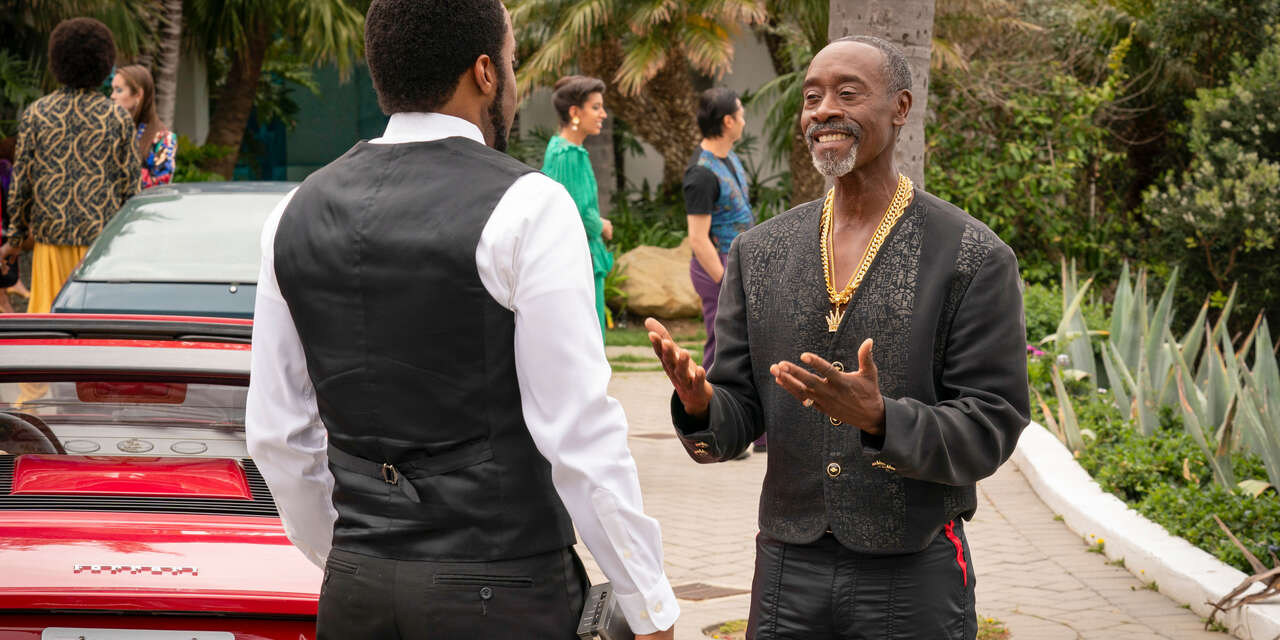







 Sarah Edmondson is among the former members of Nxivm who appear in “The Vow,” a nine-part documentary series debuting Sunday on HBO.Credit...HBO
Sarah Edmondson is among the former members of Nxivm who appear in “The Vow,” a nine-part documentary series debuting Sunday on HBO.Credit...HBO
